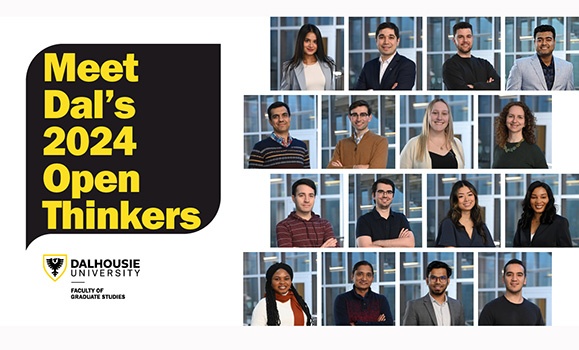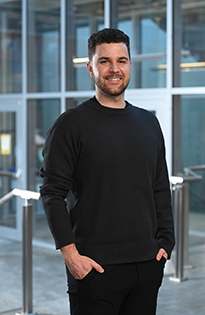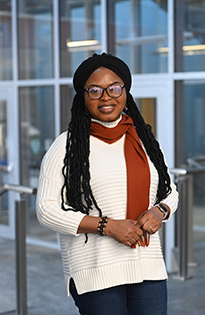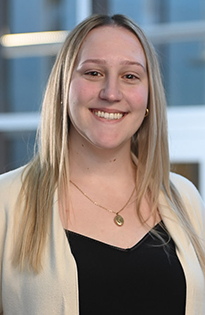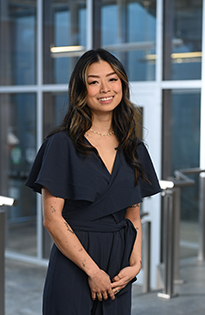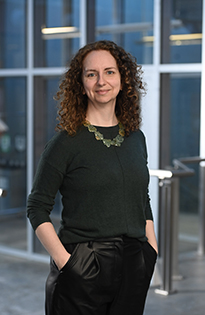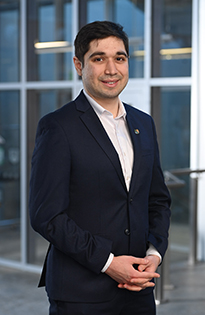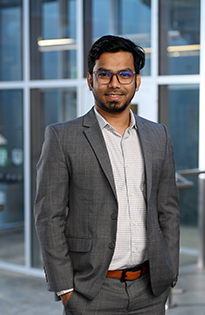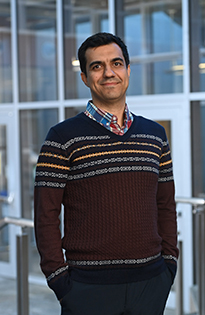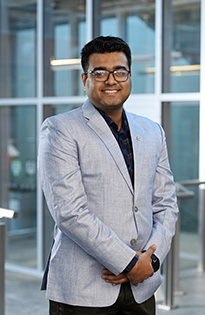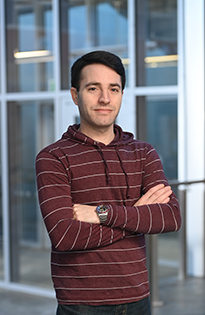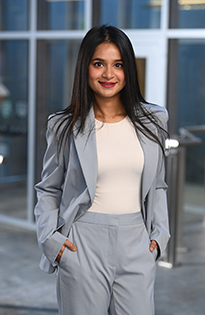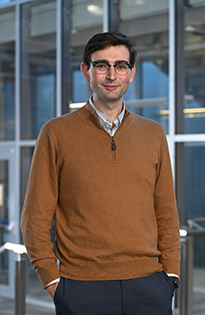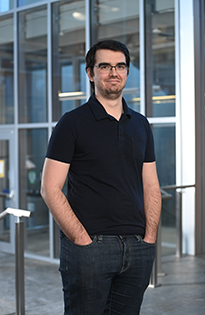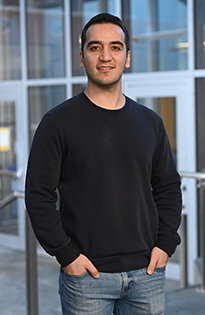¶Ů˛ą±ô’s officially returns for its fifth year starting this week with 16 ambitious PhD students from across the university forming the program’s 2024 cohort.Ěý
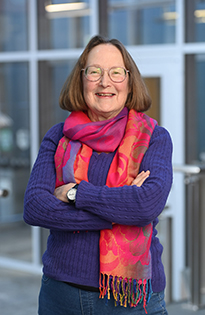 Throughout the year, the new OpenThinkers will share their expertise with the public through monthly articles on the OpenThink blog, the first of which are .Ěý
Throughout the year, the new OpenThinkers will share their expertise with the public through monthly articles on the OpenThink blog, the first of which are .Ěý
The year’s debut articles cover a wide range of research topics from socially sustainable technology and revisiting linear narrative ideas in African colonial encounters to the application of AI in farming applications. The blog will keep readers up to date on the latest knowledge, opinions, and insights from Dalhousie’s PhD researchers — who generate some of the most innovative ideas at the university.
“As OpenThink’s co-creator and academic director for the past four years, I have seen the value of this program grow, “ says Lynne Robinson, shown right. “Our Thinkers’ articles are routinely reposted elsewhere and can remain popular for years, they have international reach and, increasingly, they are beginning themselves to help build capacity for public outreach.”
Influencing discourse
The OpenThink program gives students the opportunity to influence public discourse and policy by providing a platform for thought leadership as well as communications training. OpenThinkers learn from experts in journalism, public relations, and data visualization from organizations such as the Conversation Canada, NATIONAL Public Relations, King’s College, and ¶Ů˛ą±ô’s own Creative Services.
The 2024 cohort represents 11 Faculties and 16 departments at Dal — the most diverse cohort yet. With OpenThinkers studying various disciplines, ranging from engineering to psychiatry, the program provides a unique view into the university’s leading-edge thinking. The students will help readers stay informed on some of today’s most challenging problems, such as emerging threats to democracy and support for mental health.Ěý
“OpenThinkers are showcasing their exciting research and pushing the boundaries of our understanding in a wide range of fields,” says Marty Leonard, dean of the Faculty of Graduate Studies. “Through creating knowledge for public consumption, they are forging new conversations and making change beyond the confines of Dalhousie.”
Meet this year’s OpenThinkers
Ěý
Interdisciplinary PhD
Ben takes an interdisciplinary approach to research how to reduce the impact of forestry activities on Nova Scotia's freshwater environments and fisheries.
"In the age of global biodiveristy loss and climate change, collective outcomes of local scale applied research will help inform policies that reduce or reverse environmental degradation."
Ěý
Ěý
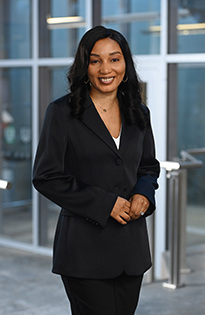 Ěý
Ěý
Computer Science PhDĚý
Ayoola is studying how to help software engineers blend social values into software development.
"As software professionals, it is important to understand that the software we create does more than just perform tasks; it shapes society, it can expose individuals and nations to social risks such as security and privacy breaches, cybercrime, social isolation and so on."
Ěý
Ěý
History PhDĚý
Chioma's research interrogates our understanding of African colonial and postcolonial histories. She studies the local production of Igbo identity in 20th century Nigeria, as socially produced processes guided by local historical actors.Ěý
"African cultures are not static, backward or 'unmodern' as colonial and nationalist historiographies assume."
Ěý
Ěý
Health PhDĚý
Emilee is studying how to re-imagine inclusion through belonging for disabled youth in school.
“I believe youth experiencing disability deserve to feel included and valued in their schools both academically and socially.”
Ěý
Ěý
Ěý
Research Psychology and Neuroscience PhDĚý
Grace is looking at how the emotions that couples experience and how they manage their emotions affects their sexual well-being.
"Our lives are full of stressors that can impact intimate relationships, ranging from transitioning to parenthood to navigating sexual dysfunctions to facing day-to-day conflicts common for all couples."
Ěý
Ěý
English PhD
Helen studies American Gothic literature, looking for representations of the road and what they suggest about the role of mobility in the American Dream.
"The American dream claims to be available to all, but actually rising economic status is nearly impossible, especially for those in certain demographics."
Ěý
Ěý
Medical Neuroscience
Jamil's research focuses on detecting and addressing the abnormal brain activity that follows traumatic brain injuries in order to prevent long-term complications.
“As a researcher, I strive to make treatment accessible to individuals all over the world.”
Ěý
Ěý
Ěý
Civil and Resource Engineering PhD
Asif is developing a model to predict how cities can better manage where people live, work, shop and eat.
“I strive for my work to be a cornerstone in building cities that prioritize environmental stewardship, economic efficiency and the well-being of their residents, thereby paving the way for a more sustainable and resilient global future.”
Ěý
Ěý
Law PhD
Mohamad’s research focus is on how Canadian laws and policies can be improved to ensure an ecologically sustainable future for offshore wind energy.
“Retaining resilience and health of ecosystems is arugably the only choice for human beings to build a resilient economy.”
Ěý
Ěý
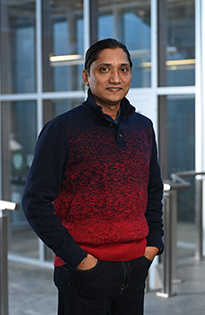 b
b
Agriculture Research PhD
Mozammel is developing smart tech to improve precision in farming
“My goal? To make modern farming slicker and more precise while not upending what farmers already know and have.”
Ěý
Ěý
Ěý
Community Health and Epidemiology
Munam uses high-tech computer algorithms to predict who might need extra help with their mental health in Nova Scotia.
"Mental health challenges are a universal issue, and the insights from this [research] can inform policies, programs and practices worldwide."
Ěý
Ěý
Interdisciplinary PhD
Nachum studies what motivates public servants to come to work daily and what draws them to those jobs in the first place.
"The main goal is to . . . improve organizational performance on the whole and make for a happier, healthier, and more productive workforce."
Ěý
Ěý
Computer Science PhDĚý
Sigma's research focuses on developing intelligent tools to find, explain and correct errors in Artificial Intelligence systems.
“I firmly believe that ensuring AI safety and reliability is not just a task for technology experts: it will require a collaborative effort involving all stakeholders.”
Ěý
Ěý
Clinical Psychology and Neuroscience PhD
Patrick uses data from e-mental health services to measure the mental health and needs of 2SLGBTQIA+ users over time and determine what types of virtual services are necessary to close the gap.
“I want to contribute to a more inclusive world, and create spaces in academia where queer, trans, and gender diverse people feel heard and represented.”
Ěý
Ěý
Mathematics and Statistics PhDĚý
Robert's focus is on the possibility of creating a double-categorical programming language that could encode more structure.
“The beautiful thing about abstraction is that it allows you to see connections between things that may not appear remotely related. Category theory provides a framework for a level of abstraction that strikes a balance between being general enough to be applicable to nearly all of mathematics, plus a plethora of "real-world" situations.”
Ěý
Electrical & Computer Engineering PhD
Sharooz is developing miniature marvels that detect biomarkers to aid in early disease detection and serve as tiny ocean monitors.
"The implications are vast, from advancing individual health outcomes to safeguarding the planet's most vital ecosystems"
Ěý
Ěý

